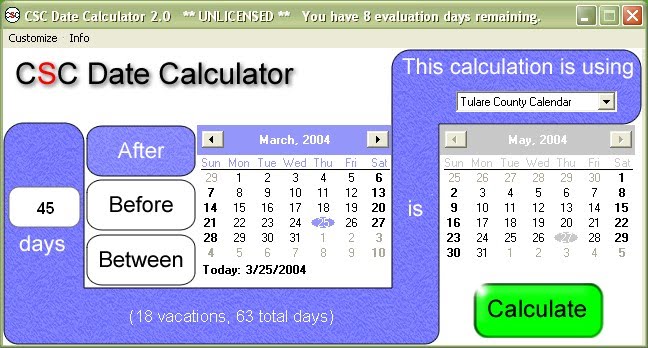

Using conception date to estimate due date is similar to using the last menstrual period, except for a difference of about two weeks in the point of measurement, based on the timing between the last menstrual period and the date of conception. It is a simple process that can be performed quickly and easily, that has no known risk to babies, and can be an accurate estimate of the due date early in the pregnancy. Thus, the due date is usually estimated by calculating the date that is 40 weeks from the start of a woman's LMP.Įstimating due date based on ultrasound involves the use of soundwaves to look inside the body and compare the growth of the fetus to typical growth rates of babies around the world. In terms of gestational age, pregnancies typically last between 37 and 42 weeks, with 40 weeks often being used as an estimate in calculations. Although there is some debate regarding when pregnancy technically begins, whether at fertilization of the egg (conception), or when the egg adheres to the uterus (implantation), gestational age does not vary based on different definitions of pregnancy since it is based on LMP. The default for this calculator bases the calculation on a woman's last menstrual period (LMP), under the assumption that childbirth on average occurs at a gestational age (age of a pregnancy calculated from the woman's last menstrual period) of 280 days, or 40 weeks. 1ĭue dates can be estimated using a number of different methods, including the last menstrual period, ultrasound, conception date, and IVF transfer date. While the due date is often estimated as a single date, it can be helpful to consider a range of due dates, since only 4% of births occur on the estimated due date. The due date, also known as the estimated date of confinement, is an estimation of when a pregnant woman will deliver her baby. It will either be a dating scan or the nuchal translucency (NT) scan, and gives you a more accurate due date, based on the size and development of your baby.Related Pregnancy Calculator | Pregnancy Weight Gain Calculator Estimation of due date Your first pregnancy scan will probably happen when you're between 10 weeks and 14 weeks pregnant.

Will my due date change when I have a scan? Knowing this can help you to be prepared for labour and birth, and to have everything ready for your new baby. In fact, only about four per cent of babies are born on their due date! But it's likely that your baby will arrive in the few weeks either side of your estimated due date. Unfortunately, no one can say for sure exactly when your baby will arrive. Will my baby definitely be born on my due date? Our calculator uses this information to give you an estimated due date. The average pregnancy lasts between 37 weeks and 42 weeks.


Most people will ovulate about two weeks before the first day of their period, and conceive shortly afterwards. That's why your due date is calculated based on the date of your last period instead. Unless you've been tracking your ovulation, there's no way to know for sure exactly when you ovulated and conceived. Have you tried adding, subtracting, multiplying and counting on your fingers? Find out when your baby is due with our handy pregnancy calculator.


 0 kommentar(er)
0 kommentar(er)
